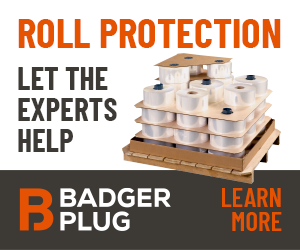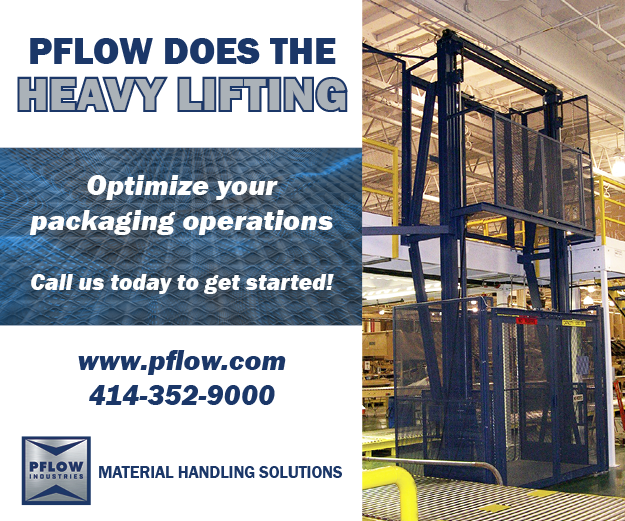Meeting Regulatory Standards With Eco-friendly Packaging Technology

Companies are developing PFAS-free substitutes to meet the regulatory needs of the industry while upholding product performance standards. Image courtesy of Mitsubishi Gas Chemical America.
Eliminating PFAS with Cleaner Chemistry
By Sean Hael, General Manager, Marketing & Sales, Mitsubishi Gas Chemical America
Per- and polyfluoroalkyl substances (PFAS), also known as “forever chemicals,” have been widely used in industry and consumer products worldwide since the mid-20th century. Once favored for its oil and water-resistant properties, this practically unbreakable compound has recently faced public scrutiny for its potential adverse effects on humans and the environment. As a result, legislators around the world have enacted laws banning PFAS in products, including packaging, putting pressure on manufacturers across a wide spectrum of industries for coordinated action now.
According to a chemicals database (CompTox) maintained by the U.S. Environmental Protection Agency, PFAS are a group of nearly 15,000 synthetic chemicals. PFAS molecules contain a chain of linked carbon and fluorine atoms and are one of the strongest, making these chemicals extremely difficult to degrade in the environment. As science around PFAS improves to better identify data gaps and understand end-of-life concerns, stakeholders are presented with an incredibly broad definition of PFAS across governments, making the regulatory landscape even more difficult to navigate.

Food manufacturers have relied on the oil-resistant properties of PFAS in oxygen absorbers too maintain freshness and resist grease. However, they must now identify eco-friendly solutions. Image courtesy of Mitsubishi Gas Chemical America.
State-level regulations
In the United States, the absence of federal legislation restricting PFAS in packaging has led lawmakers to take steps at the state-level to regulate PFAS in packaging. Some states have enacted extensive bans on all PFAS chemicals, like Vermont’s law banning the use of them in food packaging, including long-chain and short-chain PFAS. Others have ordered manufacturers to disclose any use of the harmful agent in their products, such as Washington’s state law, which requires manufacturers of certain types of food packaging to report the use of PFAS to the state’s Department of Ecology. California, Maine, New York, Connecticut, and Minnesota are among the other states that have introduced mandates around the subject.
As a result, manufacturers are being challenged to shift production plans and identify alternative sustainable packaging solutions to comply with new stringent regulations and still deliver on performance. Oxygen absorbers are an important component of the packaging solutions used across the pharmaceutical, nutraceutical and food industries, including processed meats, meat snacks, baked goods, dried fruits, coffee and teas, and pet treats. By deoxidizing the interior of sealed packages to maintain flavor, color, fragrance, and nutrition of freshly prepared food as well as dramatically extend shelf life, they are a critical tool utilized in packaging across many industries.
The three-sided sealed pouch is commonly composed of polyester, paper, and polyethylene, and contains an oil-resistant coating on the paper component to protect the oxygen-absorbing agent within the pouch so that it can operate successfully. The functionality of oxygen absorbers is vital in maintaining freshness across industries but for food manufacturers who produce products such as processed meats with high oil content, it is a fundamental part in packaging. Food manufacturers heavily rely on the oil-resistant properties of PFAS in oxygen absorbers to maintain freshness and resist grease. However, they must now identify an alternative solution that meets the sustainability needs of our planet with the same performance and efficacy that customers expect.

Oxygen absorbers deoxidize the interior of sealed packages to extend shelf life. Image courtesy of Mitsubishi Gas Chemical America.
Cleaner Chemistry
As legislation continues to evolve, companies are working steadily to develop PFAS-free substitutes to meet the regulatory needs of the industry while upholding performance standards. Oxygen absorbers, which have been utilized across industries to maintain product safety and extend shelf life, are being reengineered to meet these requirements by eliminating PFAS entirely and replacing it with a cleaner chemistry. The Japan-based company behind the creation of the world’s first oxygen absorber is spearheading this effort. Since the grease-resistant coating normally used in oxygen absorbers utilizes PFAS, they have replaced this with an advanced proprietary formula that is 100 percent PFAS-free.
In a side-by-side comparison study conducted by a third-party lab, researchers found that other top oxygen absorbers currently in the market still contain traces of PFAS. By replacing the coating with a new grease-proofing agent in its original pouch, the upgraded PFAS-free oxygen absorber is a first-of-its-kind, universal packaging solution that meets ever-changing regulatory requirements and doesn’t compromise quality, performance, and safety.
Phasing out PFAS
The increase in state-by-state regulation coupled with the emergence of growing consumer awareness related to PFAS in packaging has already had a major impact on the industry and to the supply chain. However, as manufacturers begin to phase out PFAS, decision makers are encouraged to educate themselves on the alternative options available and contact companies that are reputable and trustworthy, and taking steps to create next generation packaging solutions to remain compliant and meet overall sustainability goals.
The companies that are rising to meet the growing demands and needs of their customers through transparency, innovation and research and development through future-proof, universal packaging solutions are supporting the industry’s progress towards ambitious sustainability goals.
About the Author
Sean J. Hael is the North American General Manager Sales & Marketing with Mitsubishi Gas Chemical’s Oxygen Absorbers Division. During PACK EXPO 2023 in Las Vegas, Sean gave an innovation stage presentation announcing the debut of Mitsubishi Gas Chemical’s PFAS-free oxygen absorber technology, a first-of-its-kind packaging solution for the industry. Learn more at https://www.mgc.co.jp/eng/products/sc/ageless/.








